On July 14, Geely Holdings Group announced its latest sales data, revealing a total of 1,931,698 vehicles sold in the first half of 2025, marking a 30% year-over-year increase. Notably, new energy vehicle sales reached 1,001,496 units, up 73%, with a penetration rate of 52%. In the second quarter alone, Geely's sales totaled 985,105 vehicles, a 29% increase, while new energy vehicle sales hit 538,124 units, reflecting a 65% rise and a penetration rate of 55%. This marks the third consecutive quarter that Geely's total vehicle sales have exceeded 900,000 units, and the first half of the year saw new energy vehicle sales surpass one million, setting a new record.
The impressive sales figures for the first half of 2025 demonstrate Geely's commitment to its strategic transformation, which was formally initiated with the release of the "Taizhou Declaration" in September 2024. This declaration outlines five core strategies: strategic focus, integration, collaboration, stability, and talent. At the beginning of this year, Geely held a seminar to discuss the implementation of the Taizhou Declaration, with goals set for 2027 to achieve over 5 million vehicle sales and to become a leader in the electric and intelligent transformation of the industry. Geely has also launched its 2030 vision to lead the green and intelligent mobility ecosystem. To realize this vision, a comprehensive "1-3-3" strategy has been introduced, focusing on one main framework (the Taizhou Declaration), three transformation areas (organizational culture, competitiveness, and management model), and strengthening three business sectors (vehicle manufacturing, core components, and ecological business).
In the first half of this year, Geely successfully integrated its brands, establishing a two-pronged structure comprising Geely Auto Group and Zeekr Technology Group. The Geely Auto Group encompasses brands like Geely, Radar, and Yongzhen, targeting the mainstream market, while Zeekr focuses on high-end luxury new energy vehicles. This strategic transformation has significantly improved Geely's market performance.
Geely Auto Holdings Limited (0175.HK) reported sales of 1,409,180 vehicles in the first half of the year, a 47% increase, with total new energy sales (including Geely, Lynk & Co, and Zeekr) reaching 725,151 units, a 126% rise. Based on this strong performance, Geely has raised its annual sales target from 2.71 million to 3 million vehicles. By brand, Geely Galaxy sold 548,408 units, up 232%, while Lynk & Co sold 154,137 units, a 22% increase, and Zeekr sold 90,740 units. In the fuel vehicle sector, Geely's Star model achieved sales of 615,895 units in the first half of the year, maintaining its position as the top-selling domestic brand for 16 consecutive months.
On the global front, Geely's overseas exports reached 184,114 units in the first half of the year, achieving new breakthroughs in product exports and channel development. The Geely International EX5 launched in six key markets in the Adriatic region, delivering a premium experience to local consumers. Zeekr also made strides in the Hong Kong and Macau markets, partnering with Easy Charge to connect over 170 charging stations and 2,300 terminals, marking the launch of Zeekr Energy's global strategy. Lynk & Co continued to strengthen its presence in Europe, surpassing 10,000 units in overseas sales in the first half, becoming a high-quality example of a Chinese automotive brand's international success.
Furthermore, Volvo Cars reported sales of 353,780 units in the first half of 2025, with new energy vehicle sales reaching 155,019 units, a 44% penetration rate. In June alone, Volvo sold 13,569 units in China, bringing its total to 70,298 units for the year. In the first half, Volvo launched several key models, including the all-new XC90, S90, and XC60, to meet diverse customer needs and strengthen its market position for 2025. In the second half, Volvo plans to focus on electrification and intelligence, continuing to advance its product iterations.
Polestar, another Geely subsidiary, reported sales of 30,319 units in the first half of the year, a 51% increase, and entered the French market, where its charging network, Polestar Charge, has become one of the largest public charging networks in Europe. Meanwhile, Farizon Auto reported sales of 64,443 units in the first half, a 55% growth, with the Farizon Super VAN set to operate as a new energy taxi in Hong Kong, contributing to the city's green transportation and energy transition.
In the core components and ecological business sectors, Geely is leading the smart electric transformation of the automotive industry through its "integrated technology ecosystem" strategy. The company has applied AI across various domains of smart vehicles and has become the only automaker globally to complete comprehensive AI integration. In March, Geely launched a unified intelligent safety driving assistance system, and in April, it integrated its battery business under the brand name "ShenDun JinZhuan." Additionally, Volvo's first self-developed strategic product, the AE200 electric vertical take-off and landing aircraft, has successfully completed key technological milestones, with commercial operation expected by 2026. In May, Geely released its "2024 Sustainability Report," showcasing its achievements in compliance, climate action, resource conservation, transportation, value chain responsibility, and community engagement. Looking ahead, Geely Holdings aims to continue focusing on user-centered, safe, green, and sustainable automotive development, contributing to the transformation of global transportation and leading the green intelligent mobility ecosystem.
Geely Holdings Reports Strong Sales Growth in H1 2025
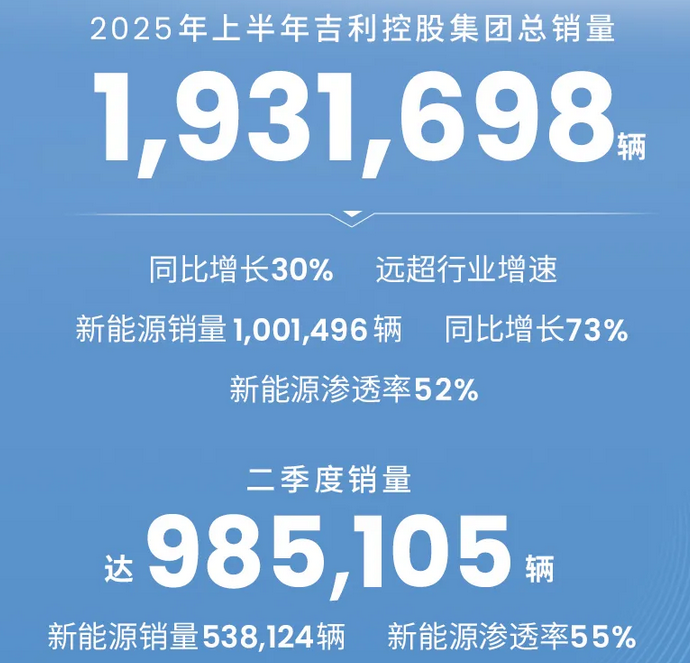
Images
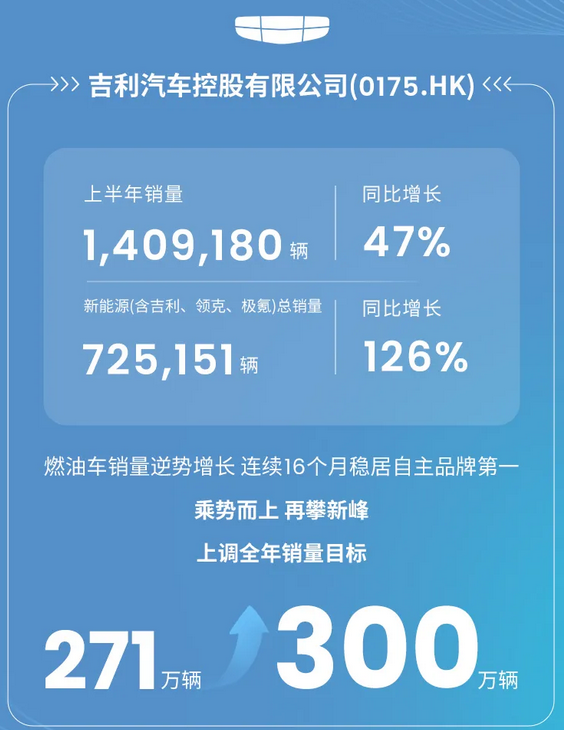
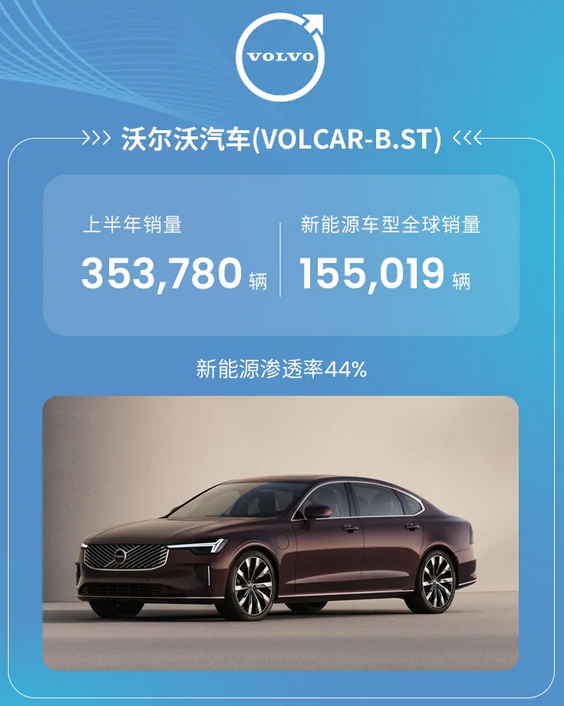
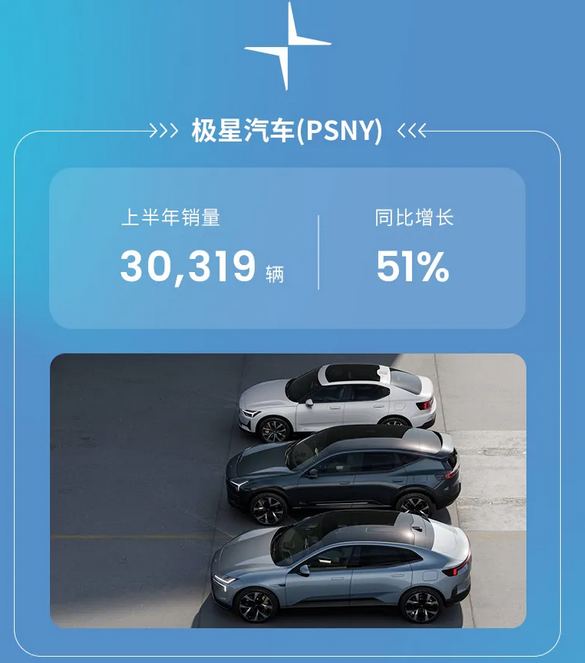
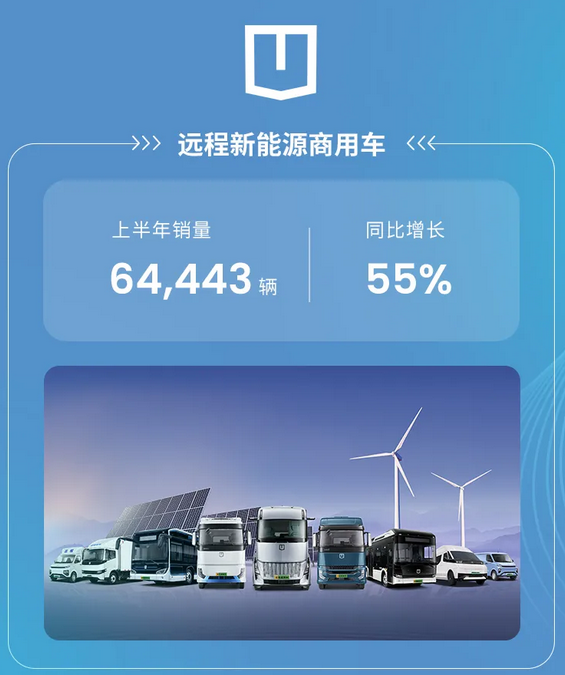
Share this post on: